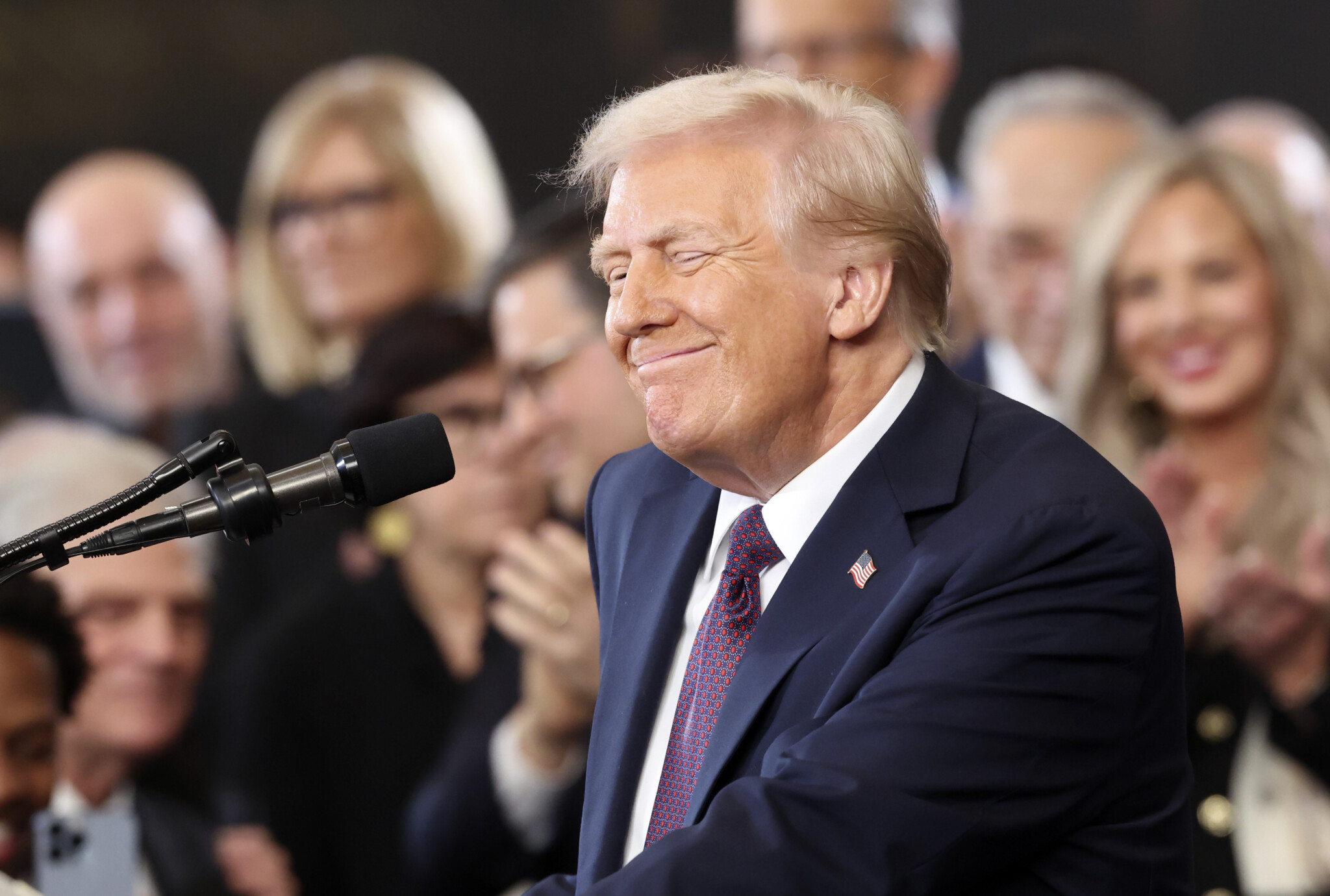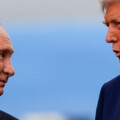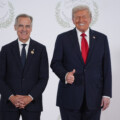Looking back, Justin Trudeau’s government will not be criticized for a lack of ideas or ambition.
Case in point is the government’s goals surrounding the transition to electric vehicles (EVs). Its stated policy is that for all intents and purposes, the vehicular internal combustion engine is to be completely phased out of the country by 2035, a mere 10 years from now.
That this is an ambitious or dubious goal hasn’t been enough to stop the federal government, alongside its provincial partners, from spending billions on EV subsidies. Even the pretence of achieving this target, however, appears to have taken a severe blow this week with Donald Trump’s inauguration.
Trudeau’s EV target and the billions in public dollars thrown at it are now at great risk in light of a significant shift in policy in the United States under Trump.
This Monday, Trump signed an executive order rescinding a Biden-era non-binding EV mandate that aimed for 50 percent of vehicle sales to be EVs by 2030. He also revoked permissions for states like California to ban gas cars by 2035, cancelled unspent funds for charging stations, and directed the Environmental Protection Agency to terminate emission waivers limiting gas car sales. Trump has also signalled his desire to end a $7,500 USD ($10,790 CAD) federal EV tax credit.
The effects of these changes–along with the threat of impending tariffs on Canadian imports–are putting new pressures on Canadian auto production.
Canada’s big bet on EVs
Many have argued that the whole EV sector is essentially a government creation in Canada. They would assert that various government policies from Ottawa and the provinces have subsidized both its supply and demand.
It started with the federal mandate that all new cars and light-duty trucks sold in Canada would be “zero-emission” by 2035.
Then, Canadian federal and provincial governments pledged more than $57 billion in subsidies and tax credits to EV manufacturers. This included $15 billion to Stellantis, $13.2 billion to Volkswagen, $5 billion to Honda, and $4.6 billion to Northvolt.
Significant public subsidies have also been made in critical mineral extraction for EV batteries in northern Ontario, feeding a planned supply chain down to factories in the south of the province which would build batteries and cars.
Different governments have also provided consumer tax breaks and other subsidies. Ottawa also put a 100-percent tariff on Chinese EV imports.
What has been the effect of all this?
While new EV registrations in Canada have increased by almost 350 percent from Q1 2020 to Q3 2024, they still only represent just over 16.7 percent of new Canadian vehicle registrations.
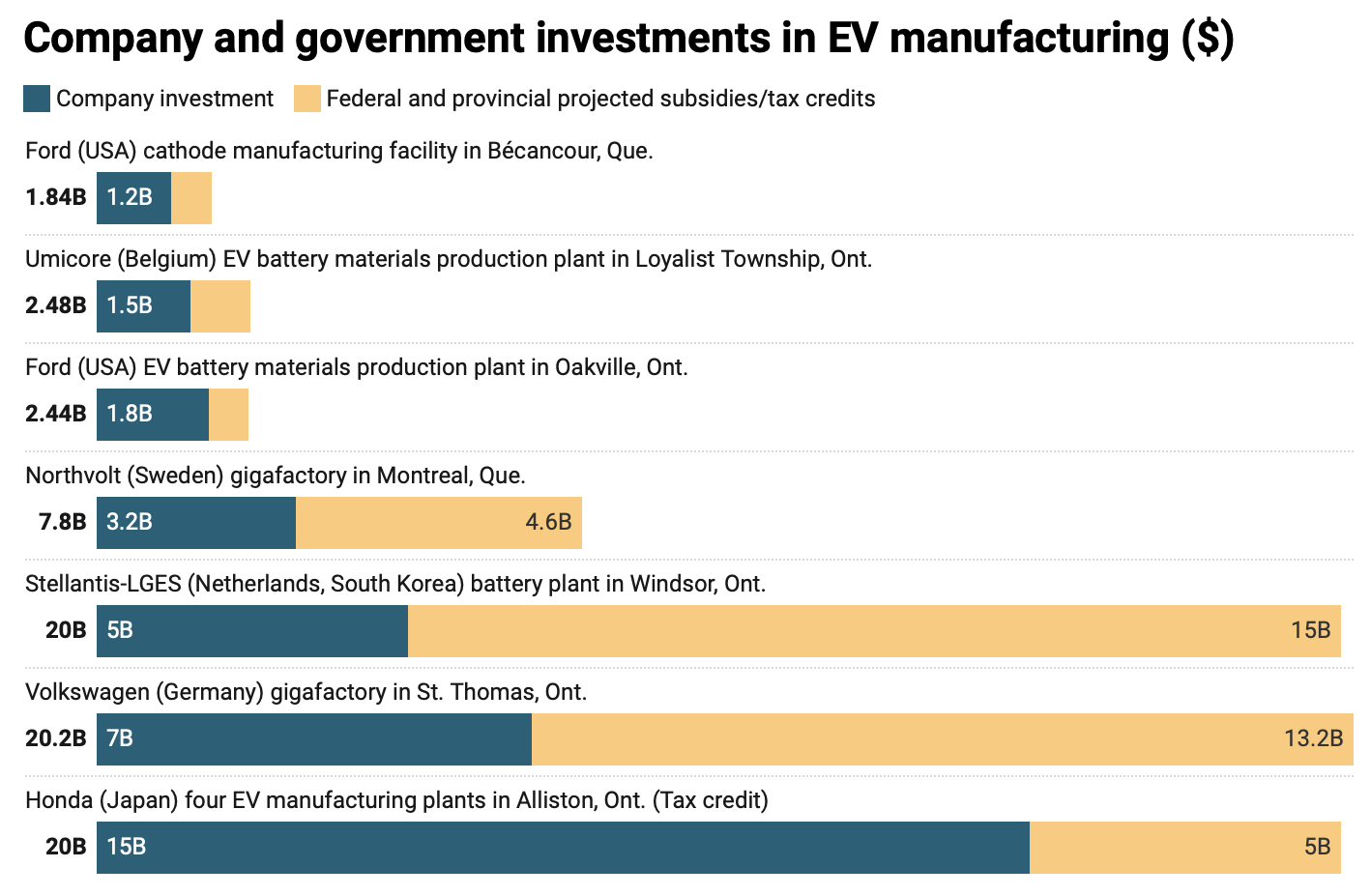
Chart: Kiernan Green, The Hub Source: Reuters, Parliamentary Budget Officer.
With Trump back in office, it seems highly probable that Canada’s EV agenda is in jeopardy, with Industry Minister François-Philippe Champagne expressing concern about what comes next.
The Hub spoke with four seasoned experts to get their thoughts on the situation and explore what Canada should do next.
“There’s no direction but failure”
Jim Hinton, a lawyer and senior fellow at Centre for International Governance Innovation, believes that Trump’s EV rollback means that “the rug was pulled out” for Canada and “almost assures” the failure of the country’s EV agenda.
“There’s going to be less demand in North America for EVs in the near and longer term, despite Canada having gone all in on EV manufacturing,” he told The Hub. “There’s no direction but failure.”
Hinton believes Canada’s EV strategy was doomed from the start because it was a political ploy based on outdated manufacturing models that failed to account for modern technology-driven methods and modern revenue generation.
“There was no chance of economic success because they based the plan on thinking from the 1920s. The value of electric vehicle manufacturing is not in being the ones to operate the machine. The value add is done by robots. Who owns the robots? Not us,” he said.
“It wasn’t even a failed gamble. It was throwing [money] in the bin,” he added.
Trump “solidifies” case for a shift in Canada’s strategy
Gabriel Giguère, senior policy analyst at the Montreal Economic Institute, believes that Trump’s EV rollback “solidifies” a case for Canada to change its EV strategy and abandon the plan to ban the sales of gas cars in 2035 and the offering of consumer subsidies for individuals who buy EVs.
“It’s an opportunity for the federal government to realize that it’s not its place to tell Canadians, ‘You will buy this kind of vehicle and not that kind of vehicle,’” he said.
“How can the government substitute for the market? Real innovations are evident through public adoption, like the demand for products like the internet or the cell phone arises naturally, without the need to force them on people.”
Giguère also wants the Canadian government to axe its 100 percent tariffs on cheap Chinese EVs in order for Canadians to have more choices.
“You’ll have affordable vehicles, and at the end of the day, the consumer will pay less, and they will have a higher standard of living,” he said.
Shift in policy should go beyond EVs
Jock Finlayson, senior fellow at the Fraser Institute, believes that Trump is doing Canada a “favour” by not only giving it an opportunity to change a flawed EV policy but by allowing it to take a different direction on energy and climate policy.
“It’s clear that Trump is going in a very different direction, not just on electric vehicles, but on climate and energy policy more generally. There’s clearly going to be no appetite in Washington, D.C. for any kind of carbon pricing or climate regulation,” he told The Hub.
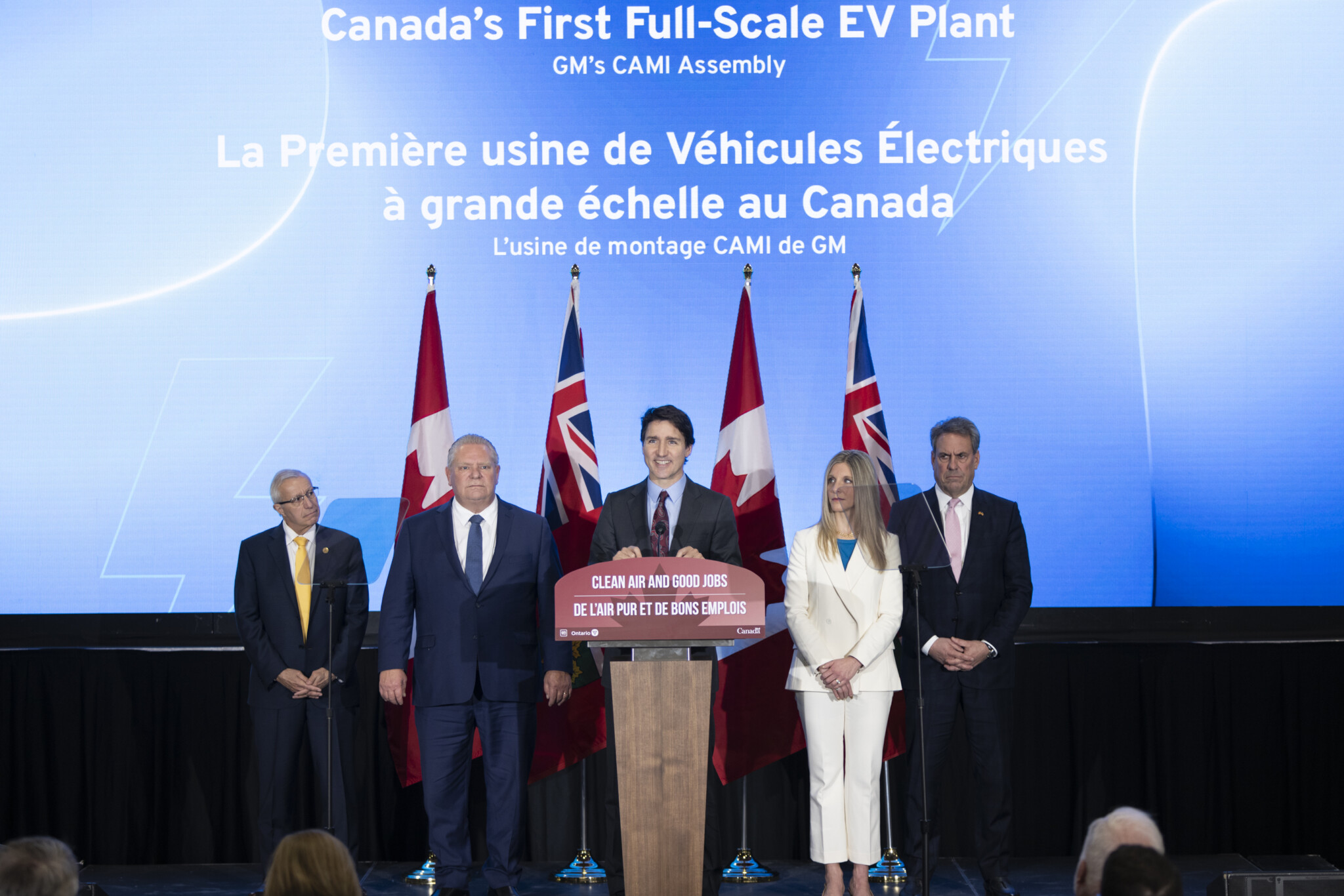
Prime Minister Justin Trudeau speaks at the General Motors CAMI production plant in Ingersoll, Ont., on Monday, December 5, 2022. Nicole Osborne/The Canadian Press.
“It really raises the question of whether we should be making adjustments in our own climate and energy policies to align a bit more closely with where the U.S. seems to be going,” he added.
He said that while the Trudeau government may not like the direction where the U.S. is going, Canada currently has no capacity to influence it.
Finlayson also believes that issues with Canada’s EV strategy—that assumed the government could “compel consumers to move away from the vehicles that they traditionally have purchased”—were bound to face hurdles regardless of Trump. He cited consumer resistance, the cost and range of electric cars, as well as electricity capacity and unrealistic timelines.
“Even if Trump had lost, a lot of these issues would have eventually surfaced. Maybe not as quickly, but the underlying flaws in the Canadian [EV] policy were destined to surface at some point.”
Trump can’t stop the “EV revolution”
Not everyone agrees. Dimitry Anastakis, professor and L.R. Wilson/R.J. Currie Chair in Canadian Business History at the University of Toronto, believes that while Canada’s EV sector is bound to be affected by Trump’s rollback, EVs will remain the future of transportation.
He said the world is seeing an “EV revolution,” and that China and other parts of the world have made significant advancements. China currently accounts for 80 percent of global EV sales growth.
“It’s a global transition. If the United States wants to put itself in a position where it’s going to be 10 or 20 or 30 years behind the Chinese, that’s fine. But the Chinese are already there,” he told The Hub.
Anastakis does not believe Canada should abandon EV subsidies, adding that consumer subsidies have been successful in increasing EV sales. The average pre-rebate EV price in Canada is $73,000.
“For environmental reasons alone, [subsidies] are probably a good thing. You’ve seen in B.C., where they do continue to subsidize the sales of vehicles, there’s been a far greater uptake.”
Anastakis warned, however, that Canada might miss out on production opportunities because of Trump’s measures, and places the blame on the Republican president.
“Trump has made it very clear, for reasons both rational and irrational, that he doesn’t like renewables [or] EVs,” he said.
He added that the new president has completely upended assumptions around the industry.
“If Donald Trump didn’t get elected, we’d be in a very different dynamic when it comes to EVs, trade, and the economy,” he added.
Editor’s note: An earlier version of this story incorrectly stated that Stellantis was moving 1,500 jobs back to the U.S.
